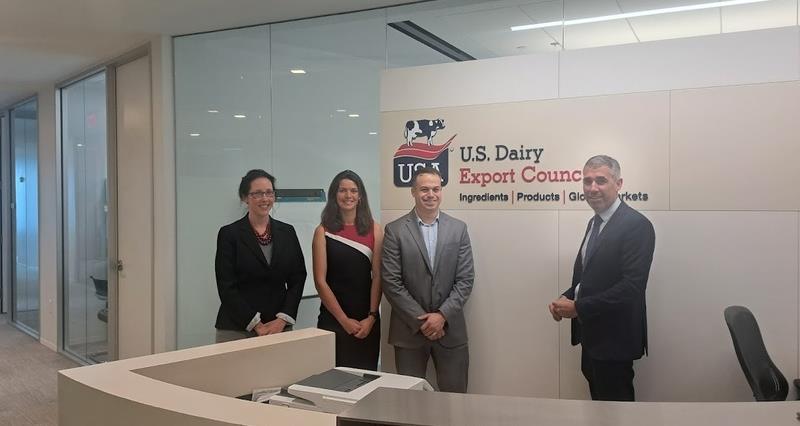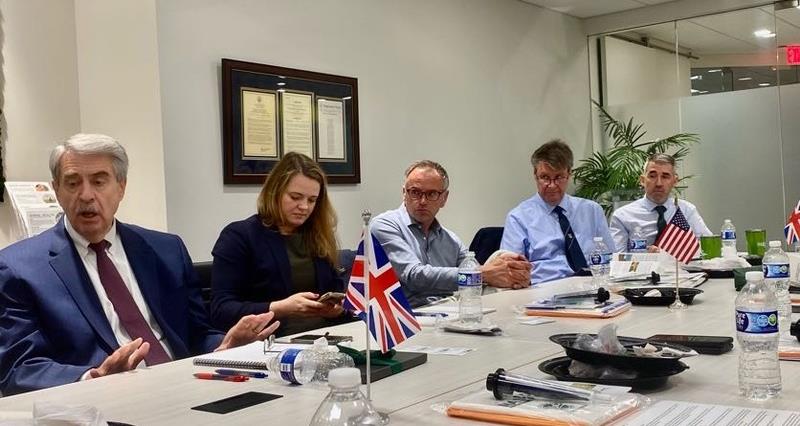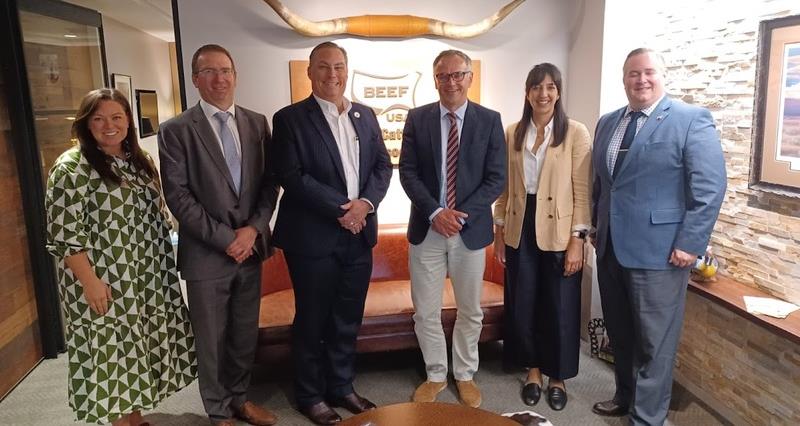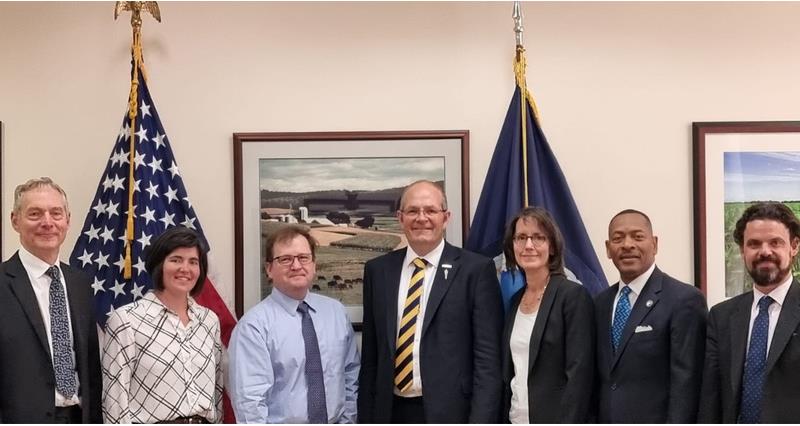As the UK relationship with the rest of the world continues to develop, I was delighted to lead an NFU delegation to the United States, one of the world’s trading powerhouses. Members and staff visited family farms in Illinois before meeting with British and US officials in Washington DC.
For British farmers and growers, the United States presents us with a significant export opportunity for our produce. It is a high-value market with a real affiliation to the Union Jack and its consumers care about where their food has come from.
Fair trade and free trade
My conversations with US stakeholders focussed on the merits of a fair trade agreement, not just a free trade agreement. The UK’s standards often impose more stringent and costly requirements on UK farmers.
Any trade deals must recognise the same animal welfare and environmental protections that the British public expect of their own producers.
Our discussions highlighted:
- Vaccines for AI and TB and a DIVA test to be urgently approved by the World Organisation for Animal Health
- Clear communication needed around gene editing and gene-modified organisms
- Better administration needed of the US beef tariff rate quotas, moving to a licence-based system instead of first come first served
- Access to labour issues facing horticulture growers on both sides of the pond
- Identifying and removing non-tariff barriers to UK agri-food exports, building on the recent re-admission of lamb into the US – for example, for British beetroot
- Collaboration between farmers and government to address water pollution
- Support for the next generation of farm leaders.

Importance of attachés
As part of our campaigning and lobbying work on food standards since 2020 we have worked with the UK Government to secure 13 new agri-food attachés around the world. As we met with the British Embassy in Washington DC, we were able to continue to build these strong links with the new agri-food attaché and pass on our gratitude for this ongoing work.
Learning from our competitors
But the trip was not just an opportunity to strengthen our trade connections, it was also a chance to learn from our competitors in Illinois. For example, it was great to hear how they too believed that GWP* should be used as the standard metric for methane emissions. We highlighted the potential for a global coalition made up of farm groups, scientists and NGOs.
We also learned that agricultural policy in America is incentivised and voluntary rather than legislated and mandatory. Interestingly, this seemed to be accepted by regulators and was not changing any time soon. However, it did spotlight how environmental and animal welfare standards in the States were very different to those back at home.
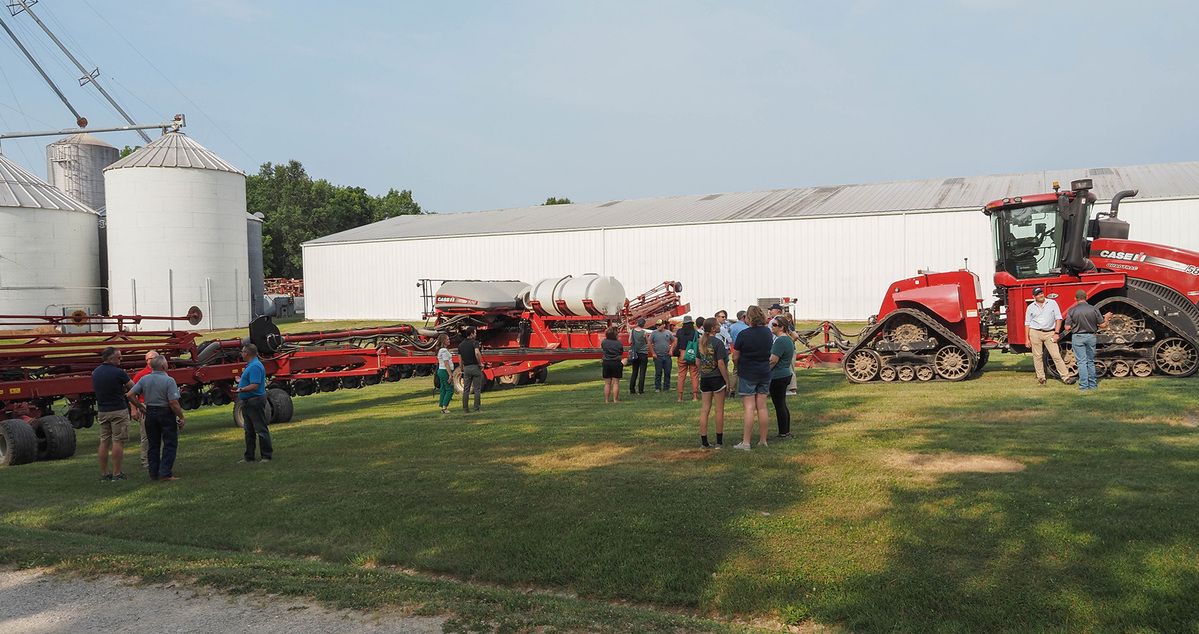
Important knowledge
The intel and knowledge that we brought back from the States is something that our boards and staff can now analyse to benefit our members.
We have a much better understanding of US production systems and we now have the beginning of a strong working relationship with our American counterparts as agricultural trade develops in the coming years.

